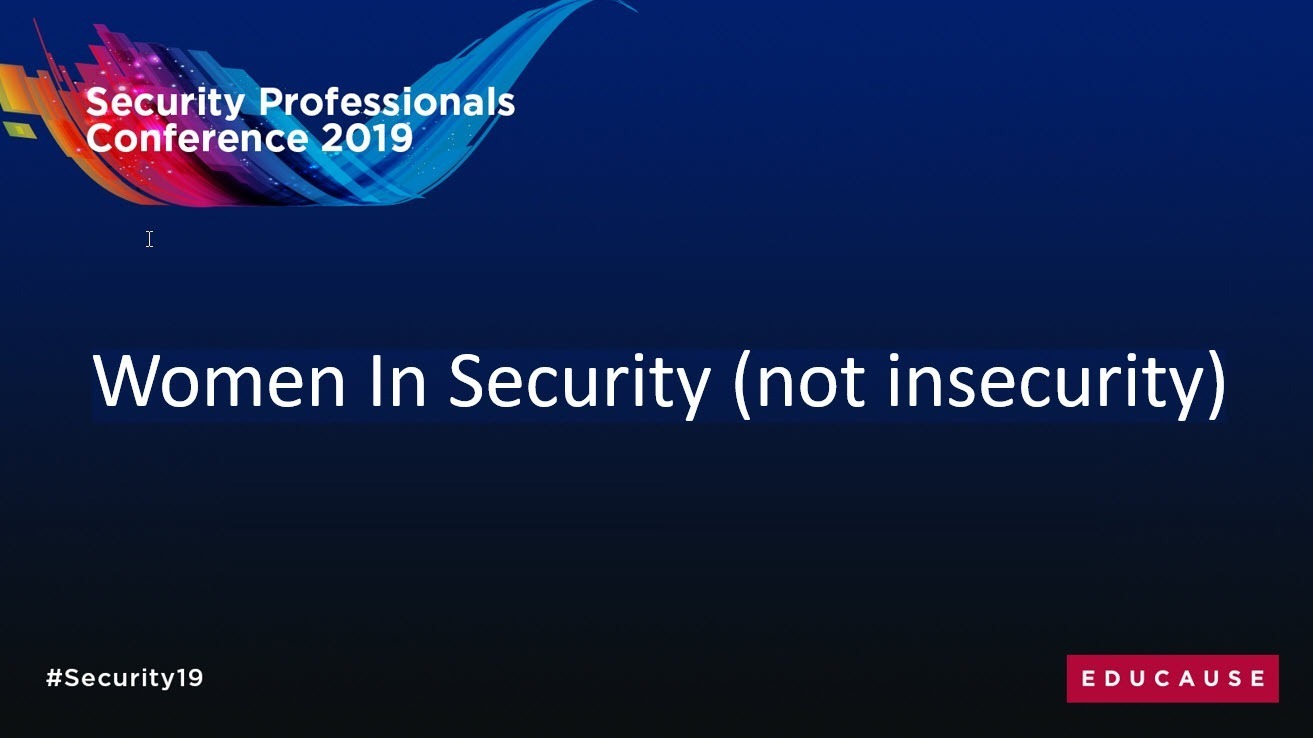
Episode 34: Victoria Lioznyansky–Public Speaking for Introverts
Category:introversion,Introverted Leadership,introverts,PodcastPodcast: Play in new window | Download
Subscribe: Spotify | Amazon Music | iHeartRadio | Podchaser | TuneIn | Deezer | RSS
Episode 034 Show Notes: Victoria Lioznyansky
Introduction
Victoria Lioznyansky and Ben Woelk discuss public speaking for introverts and the secret to being a great presenter.

Key concepts
- Public speaking for introverts
- Secrets to being a good presenter
- Introvert strengths and presentations
- Brilliant Speakers Academy
Quotable
As introverts, we have a lot of strengths, a lot of strengths. And if we use those strengths correctly, we can be a lot better public speakers than extroverts.
Instead of letting those thoughts run through your head, you immediately change those as you know, pattern interrupt, and immediately think, what can I do for my audience?
When you are passionate about your topic, you can’t help but make your audience passionate about it because passion is contagious.
it’s an ability to engage with the audience, to see the audience, to understand the audience, to want to make a difference for the audience that builds the empathy, that it enables you to convey the passion.
Resources or Products Mentioned in this Episode
- Brilliant Speakers Academy
- Episode 27: Megan Mack–Empathy and Meaningful Discourse
- Episode 28: Megan Mack–Introverts and Improvisation
Links
- Follow Hope for the Introvert on Twitter
- Like my page on Facebook
- Support me on Patreon
- Get swag for Hope for the Introvert and Introverted Leadership at Zazzle
Transcript
Ben: Welcome back, Victoria. I’m looking forward to talking about public speaking in introverts, which many people think is an oxymoron in many ways, or just such an impossible, insurmountable hurdle of really an un–unnatural sounds really wrong, but a not natural, I’m sorry, but a not natural area for introverts! So talk to me about this public speaking for introverts and coaching. I know my path. You’ve shared a little bit about your path in the previous segment, but hear from you about this. I’m excited about it.
Victoria: Yes, you are so right about people not really thinking that being an introvert leads to being a great public speaker. In fact, it’s quite the opposite. What I hear quite a lot is that famous mental block. I am an introvert. That’s why I cannot be a public speaker and I think for the most part it comes from people who know introverts, but who still don’t quite understand what the introvert is. A lot of people confuse introversion with shyness. Granted, a lot of introverts are shy, but it’s not really what defines an introvert, right? What defines an introvert is how we drain our energy and how we recharge our energy, and a lot of introverts are not shy, but we would not like being the center of attention, which of course leads us to think, “Well, I don’t like to be in the spotlight, then I probably shouldn’t be a public speaker, and it is a mental block and it is a wrong mental block and you need to shift your perspective on this.
Victoria: A lot of people are saying, I am not good enough. I’m not articulate enough, I’m not interesting enough. I’m not smart enough. I don’t have enough to share. And that’s why I should not be a public speaker. But this is nothing but an illusion. As introverts, we have a lot of strengths, a lot of strengths. And if we use those strengths correctly, we can be a lot better public speakers than extroverts. And that’s the truth. And there are a lot of introverts who are amazing public speakers who are actors, or are singers. Did you know about Elvis Presley?
[bctt tweet=”As introverts, we have a lot of strengths, a lot of strengths. And if we use those strengths correctly, we can be a lot better public speakers than extroverts.” username=”hopeintrovert”]
Ben: Yeah. I received your newsletter today. You referenced having gone to Graceland, sharing that about Elvis. And I’m actually not surprised because I did know that he was reticent to be in public. But it is something that people are always surprised to hear, that great actors are introverts, and sometimes the powerful presence that you see on stage, when you talk to them individually, there’s a disconnect. Yeah, it’s an interesting thing.
Victoria: It’s an interesting thing and I think what we need to do as introverts is we need to focus on our strengths. A lot of our strengths may be even perceived as weaknesses, but they are strengths. One of those strengths, which is completely funny and makes no sense, but I’ll still say it, one of those strengths is us not liking to be the center of attention. And that makes no sense whatsoever. But let me explain, because we as introverts don’t like to be the center of attention. What we naturally do and do really well is shift the focus from ourselves to other people, right? If you think of having a conversation with a stranger, and I don’t know how you do it, but I always, and it’s intuitive, I don’t even think about it. If I’m having the conversation with a stranger, I immediately want to shift the focus from me.
Victoria: I don’t want to talk about myself. And I shifted the focus to that as a person. How do we do that? We ask questions. We try to make it all about them as a person, because then we don’t have to speak as much. We can just focus on them as a person and do what we do best, you know, reflect, ask questions and so on. So we as introverts, are actually very good at shifting the focus from ourselves to the other person. So the question is how is it going to help us with public speaking? When you are on stage, if you are afraid of public speaking, as most people are, if you’re afraid of speaking on stage, on camera, on podcasts. Anyway, it doesn’t really matter. The medium doesn’t matter. If you afraid to speak in front of an audience, it’s usually because of one reason.
Victoria: You are focusing on yourself and your fear and you can’t help it. You know, if you are afraid, you can’t help not to think about your fear as you stand in the end. I know I’ve experienced it many, many times. Growing up, you’ll stand there looking at the audience, just pure horror, you know, shaken and sweaty and scared. And you can’t think of anything other than I am terrified. I don’t want to be here. And when those thoughts are in your mind, you keep on focusing on them. You may start talking and you give a presentation, but you keep on thinking in the back of your mind. The whole time, “They judging me, they’re thinking I’m a fraud. The thinking, I’m not good enough at this. They don’t like how I look, so don’t like how I sound.” And so we keep on focusing on ourselves this whole time, never truly connecting to our audience.
Victoria: And so what we need to do, and again, as introverts, we know how to do it. What we need to do is when we are in front of any audience, in any medium, we need to shift the focus off of us to our audience. So instead of standing there thinking, “What is my audience thinking of me right now as a judging me, are they critiquing me as I think and I’m not good enough, they probably already discovered that I’m a fraud.” Instead of letting those thoughts run through your head, you immediately change those as you know, pattern interrupt, and immediately think, what can I do for my audience? How do I want to make my audience feel? And when you truly love what you’re talking about, when you truly love your audience, this mindset shift is actually a lot easier than you think because as soon as you think about your audience, not in a way it’s an enemy that judges me, but it’s these other people whom I can help, who I can give something.
[bctt tweet=”Instead of letting those thoughts run through your head, you immediately change those as you know, pattern interrupt, and immediately think, what can I do for my audience?” username=”hopeintrovert”]
Victoria: Then everything changes. You shift the focus off of you to your audience and you start talking and all of a sudden all of your focus is, am I making sense? Am I giving them enough? Can I give them more? What else can I give them? How can I make this experience even better, even more impactful, even more transformational for my audience? As you think in that, your brain cannot simultaneously think the thought of, “I’m not good enough, I’m scared,” because we only can focus on one thing at a time. And if you focus on your audience, you won’t be thinking about your fear, and if you’re not thinking about your fear, your physical symptoms, like those symptoms that you experienced, like you know your heart pounds and you’re sweaty, they begin to go away as well. And that’s an amazing, amazing experience.
Victoria: And I know then you feel it. I’m sure every time you record a podcast you, no matter how you feel before the podcast, and I’m not making any assumption, just saying, you know, no matter how you feel, as soon as you start talking to your audience, your first thought is, how can I make this episode the most beneficial for my listeners? You’ll focus in only on your listeners and not on how do I sound or what do they think of me? Right? And when you make this shift, everything changes. And I think this is really a key, the key to overcome your fear of public speaking. It’s shifting the focus so you,
Ben: Yes, it definitely makes sense, because I know for myself, when I’m speaking, I’m really engaging the audience. I’m trying to engage the audience because I want a substantive dialogue with the audience. When I speak at conferences and things, and I’m wondering about that you haven’t touched on, when talking to other introverts, a lot of what gives them the comfort level to get up in front of people in general is feeling like they know the subject well enough also. And we didn’t touch on that. And I know that you’re not saying…
Victoria: I know that yes, that that’s important too. It’s just not what we’ve talked about yet.
Ben: But, I know for me, the more comfortable I am with the subject, the more I can focus on the audience. I think it’s the way I would put it as opposed to being concerned about, “Oh my gosh, they’re going to figure out I’m an impostor,” or they’re going to ask questions I’m not going to be able to answer, which of course they’re going to ask questions, I’m not going to be able to answer. That just always happens. But in general there is that subject matter preparation part too. How does that play in?
Victoria: This absolutely plays a part. However, and the reason why I didn’t want to start was that is because even those who are well prepared and they know a lot of things about their subject matter, they still go in front of the audience feeling like an impostor, which is crazy, right? I mean we know a lot of people, both you and I, who are subject matter experts who are prepared with the presentation, but they go in front of an audience and they freeze, which makes absolutely no sense and that’s why I didn’t want to start with that, because I think what you need the first mindset shift you need to make is the one that I described is that you need to start thinking in terms of it’s not about me, it’s about my audience. It’s not about me seeing the potential of getting challenged. I can give the student absolutely, absolutely.
Victoria: But of course being an expert, let me use a better term knowing your subject because being an expert is so overused and truly who is an expert, you know, is there is always somebody who knows more, right? How can you call somebody an expert when there is always somebody better? So none of us are experts, but we do know our subject matter and we are ahead of our audience. Even if you are only three steps ahead of your audience, you know your subject matter better than your audience. But it’s not about knowing or it’s not only about knowing and being prepared. What I teach my students in my program, it’s that it’s also about truly falling in love with your topic. You may be given a presentation on something that you know in and out, or you give,maybe giving the presentation on something that you have a peripheral knowledge, but somebody asks you to present on it.
Victoria: It makes no difference in the way you how great your presentation could be. What makes a difference is that you completely and totally fall in love with what you’re presenting about. And when you are passionate about your topic, you can’t help but make your audience passionate about it because passion is contagious. When you are preparing for something that you’re passionate about and that you love, you prepare differently. You don’t just go and say, “Okay, well here’s my outline, I’m done.” No, you’re thinking of, “My goodness. There’s so much I can tell them. There is this cool story I can share.” There is this joke, there is this anecdote that you know, my experience with this particular topic. You begin to wrap that topic in the layers and layers of stories that will make your audience understand, relate to this topic, and just will make you a better speaker on this topic.
[bctt tweet=”When you are passionate about your topic, you can’t help but make your audience passionate about it because passion is contagious.” username=”hopeintrovert”]
Victoria: So it’s extremely important to not just know what you’re talking about, but actually love it. Like fall in love. Was it fall in love? Was it like, you know how some people, you probably have friends like that, they like something? I don’t know, fishermen or computer games and they can talk about it nonstop and they have, so they may not care about fishing, but the way they make it sound is so much fun because they wrap it in stories. And so this is what we need to do with what was our topic, was what we know you fall in love with. It’s the point where you are very passionate, that transfers that passion.
Ben: It’s building empathy with your audience also because, and that comes back to the whole, it’s for your eyes, it’s about your audience. It’s not about you in that sense. I know some of the work I’ve been doing recently, in a fairly recent podcast, is with Megan Mack, who’s a professional improv coach, and just talking, and who’s also an introvert and talking about the role of learning the improvisation part. But the key part of Improv is the, “Yes, and?”, and that is the part about it being about your audience and about what you’re doing for them. Rather than, I just know this information, I’m going to present this information. So I think the passion–I mean you’re talking about communicating passion to inspiring the audience is the same thing as getting them passionate about it. But I think it’s that ability and I’m agreeing with you. I think it’s an ability to engage with the audience, to see the audience, to understand the audience, to want to make a difference for the audience that builds the empathy, that it enables you to convey the passion. Does that make sense? Yeah.
[bctt tweet=”It’s an ability to engage with the audience, to see the audience, to understand the audience, to want to make a difference for the audience that builds the empathy, that it enables you to convey the passion.” username=”hopeintrovert”]
Victoria: Yeah. Right. Absolutely. And that actually was a part, and that’s a huge part of shifting the focus away from you to your audiencem and focusing on your audience is when it becomes all about them, it becomes all for them. And you overlap this through your focus on your audience and you’re passionate about what you’re talking about, about the topic of your presentation. And when those two things overlap, your audience really, really gets a lot out of it. I think it may sound the same as, “Oh, they’re just getting information,” but it’s not, they’re no longer just getting information. It’s not about just giving some information. It’s about a lot of other things. It’s about the audience’s journey. It’s about the audience feeling something by the end of your talk, by the end of your presentation that they didn’t feel in the beginning.
Ben: It’s funny, because I feel like we are using all these terms that people would never believe the introverts would use, are think about when they’re up there presenting, because we’re talking about passion or talking about engagement with the audience, not pulling back from the audience. We’re talking about building empathy. We’re talking about falling in love with the subject and communicating with it, because that passion and that love for the subject communicates it better. It’s just really funny because if I were on the outside and I’m going to listen to and hear about how introverts become public speakers, I don’t know that as an outsider, as a non speaker, I understand where you are with this completely because I’m engaged in it too. But I do wonder how surprising this would be for some people to hear.
Victoria: I think it’s very surprising for a lot of people, but I think it’s also–I believe this about public speaking. It’s not about tips and tricks and do this, say that, Because I believe that public speaking is all about those mindset shifts that we discussed. And as an introvert, there are several things here that you know you’re good at but you don’t think it’s applicable. One of them we have talked about is shifting the focus from you to your audience. And the second thing that’s I think is also very interesting for introverts is how we don’t like to talk in group in a group setting in general, right? We would always prefer to speak one-on-one and have this meaningful conversation with one person. And really they get to know that one person versus speaking, just lightly speaking to a group of people with a group of people.
Victoria: And again, it may seem like an oxymoron because, “But we are introverts and we don’t like to speak to a group of people.” And how is that our strength? Well, it actually is a strength that we can speak one-on-one really well and we can apply it to public speaking. And this is how you do it. If that works when you are on stage, it’s not really a, you know, for a podcast or video, but when you’re physically on stage or physically in front of several people and you’re looking at those people, the first thought that particularly when you’re an introvert, you’re like, “Well, I just don’t want to be there. I don’t want to look at all of them. It’s overwhelming. I’m beginning to feel anxiety.” So what you need to do is apply your one-on-one skills, those from that environment, and the way you do it is you begin speaking one-on-one to one person in the audience.
Victoria: You literally make eye contact with one random person in the audience and you speak to that one person completely one-on-one. Yes, nobody else exists. You’re not looking at anybody else. You’ll speak in one-on-one to that one person for just a few seconds, maybe five seconds. And then you shift your gaze to a different person in the audience. And now you speak to that person one-on-one for a few seconds. And what that does is you never ever look at that whole group of people. You never feel overwhelmed because you always only speak in one-on-one to one person at a time. And that makes a huge, huge difference for introverts because we do like one-on-one. We are good at it and as long as we just adjust our mindset that I’m speaking for a few minutes, for a few seconds, just to this one person, nobody else exists. It truly feels like a one-on-one conversation, because as you are making that eye contact, that person is actually giving you back nonverbal feedback. You know they may be smiling back at you, maybe nodding their head as they agree. Maybe they give you some sort of a feedback like a new regular one-on-one conversation. And so it feels natural. It feels very doable and you continue shifting your gaze. You continue doing this one-on-one with different people in the audience and that gets rid of loads of pressure. Yeah, that sounds really good and it works.
Ben: Yeah. And it absolutely jibes with my experience too. And also with how, when I was initially speaking, how I was so overwhelmed with the idea of speaking in front of an audience at all, that it impacts everything obviously.
Ben: So you’ve built this into a coaching business. What are you doing with the business part of this and I’m just interested in where, who is your clientele? How big is your business? What are you trying to do with your business? And big is the wrong thing, because I’m not looking for how many followers can I get on a podcast necessarily either. It’s how can I make a difference for people. So yeah. Talk a little bit, if you would, talk a little bit more about your business.
Victoria: Sure. Well, currently I have followers and clients actually all around the world. It’s amazing what internet has done for us, right? When I opened my first business in Colorado a couple of decades ago, I only had clients in Colorado, right there in Denver. And now I have clients in Canada, in the US, in Australia, in New Zealand, in Nigeria. I mean it’s pretty unbelievable how small the world feels right now. But what I’m doing with my business is I teach my students primarily through my Brilliant Speakers Academy. So that’s my main vehicle. I don’t really do a whole bunch of one-on-one coaching, because it’s just, I just don’t have enough time for that. And so all of the one-on-one coaching actually does happen inside of my freelance business Academy where I do one-on-one and group coaching.
Victoria: So that’s what my business is all about. I created the signature program where I packaged everything, absolutely everything, that has made a difference in my life and helped me transform from being scared to being very comfortable and not just being comfortable but enjoying it. And I packaged all of it inside of my frameworks and inside of my program. It’s not just only about how to overcome your fear, it’s called overcome your fear in a very holistic sense. It’s all some mindset shifts that you need to make. Also daily routines that you need to have. There are so many things, so many things that you can do to make the change permanent, because we’re not talking about appearing confident on stage, on camera, on a podcast. It’s not about appearing confident. It’s actually about truly feeling confident and there is a difference. And I want my students to not just fake it till you make it, which I absolutely don’t agree with.
Victoria: I believe that you need to make the change on the inside. You need to learn how to feel confident and then you never ever fear public speaking again. It never ever makes you uncomfortable again. And so we talk about all of this in my program. I teach students my framework on how to craft a compelling talk and it’s all based on stories and feeling confident. We talk about how to prepare, thoroughly prepare because that’s extremely important. And you mentioned that you touched on it, how being well-prepared helps you feel confident. It’s not the first thing to make you feel confident, but it’s definitely one of the things to make you feel confident in front of an audience.
Ben: So there is some introductory training available?
Victoria: So I do have for absolutely free trainings that you can go and access right now and you can get it at www.ByVictoriaL.com/training and I think you will get a lot out though it between today’s podcast and the training.
Ben: I started asking my guests if there’s one thing that people would be surprised to know about you?
Victoria: One of the things that people are usually surprised by, is that my life revolves around fencing and fencing. I mean like Olympic sport–not that we do fences around the house–around fencing. Both of my kids fence. My oldest son has been fencing for seven years. And the shift in the way we live our life because of that has been so profound and huge. It’s mind blowing for me because we literally shape our life around fencing and fencing competitions and traveling nationally and internationally for my oldest son’s competitions. And making plans, future plans, around when Olympic games are happening in and stuff like this. So it’s very much crazy and unusual. And when people find that out, they are surprised. And in fact, not only my kids fence, but I’ve been–I’ve started fencing myself as well. I took a little break but I’m going back.
Ben: Any last thoughts you’d want to share with the audience
Victoria: Yes. I want you to truly believe that as an introvert you are capable of absolutely everything. We have so many gifts. We have so many special talents and anyone–particularly about public speaking, anyone can learn to become a great speaker. It doesn’t matter if you are an introvert. It doesn’t matter if you failed before. Really failed in front of an audience before. It doesn’t matter if you don’t believe, you know everything doesn’t matter if you have imposed that syndrome, it doesn’t matter. Even if English isn’t your first language, it doesn’t matter. Anyone can become a great public speaker with the right training, the right practice. I really want you to believe in yourself and not.
Ben: Okay. Well, great, Victoria, it’s been a great conversation. I’m looking forward to sharing it with our listeners.
Victoria: Thank you so much, Ben. It’s been a pleasure.
Extras













